Gladys Berejiklian falls on ICAC’s sword
ICAC was set up in 1988 and across three decades it has been a grubby, tantalising political soap opera without rival.
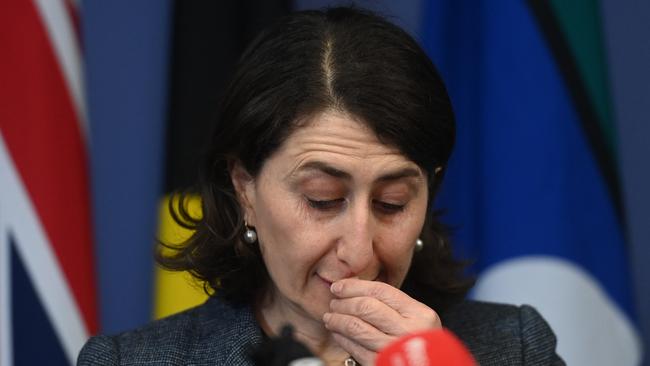
On Friday morning, ICAC announced it would investigate whether Berejiklian’s relationship with former MP and clandestine boyfriend Daryl Maguire created a conflict of interest that resulted in her breaching the public’s trust by awarding grants to a clay target association and a music conservatorium in Wagga Wagga.
At 1pm, the outgoing Premier was forthright about her record and character.
“History will demonstrate that I’ve always executed my duties, again with the highest level of integrity, for the benefit of the people of NSW,” she told reporters, then headed for the door without taking questions.
Berejiklian (2017-21) joins Barry O’Farrell (2011-14) and Nick Greiner (1988-92) as conservative leaders undone by the state’s corruption watchdog. But unlike those episodes, NSW is in a deep health, social and economic funk, and another one’s gone.
Berejiklian’s exit comes while the nation’s most populous state is in a perilous position. The virulent and deadly Delta variant of Covid-19 has roamed far and wide since mid-June, so far infecting more than 57,000 people across NSW. According to NSW Health there are currently 1055 Covid-19 cases admitted to hospital, with 210 people in intensive care, 104 of whom require ventilation.
On the positive side, almost 88 per cent of people aged over 16 in the state have had their first vaccine dose, while 65.2 per cent are fully vaccinated. Meaningful reopening is in sight, with an easing in social, work and education restrictions days away, a testament to Berejiklian’s diligence and grit.
But the state’s powerhouse economy has been battered by the three-month-plus lockdown, with economists expecting the just completed September quarter to be an activity wipe-out. Westpac chief economist Bill Evans has forecast an 8.3 per cent slump in NSW output for the quarter and has trimmed the state’s revival in December to a meagre 2 per cent, as the state faces an ongoing heavy caseload.
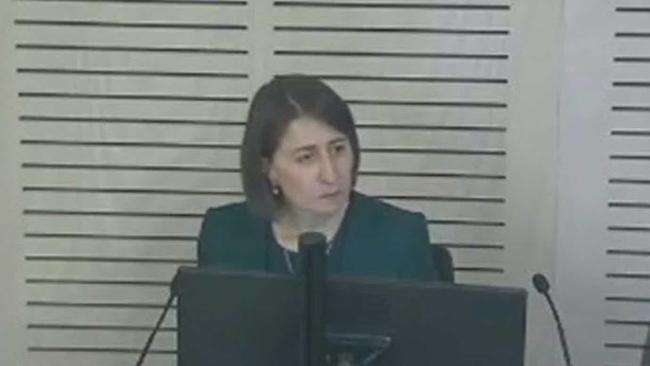
“The early stages of the recovery are now expected to be much more restrained than previously expected as state borders remain closed and the NSW and Victorian governments, despite achieving the 80 per cent vaccination targets, are cautious about overwhelming already stretched hospital systems in the early stages of a reopening,” Evans wrote in a note this week.
But the political turmoil will also unsettle voters and businesses. Despite her shortcomings, workaholic Berejiklian was seen as a safe pair of hands, someone who intuitively understood the engine room of how the state functioned. There was no poetry, but there was poise.
Yet the personal and political ructions, not to mention the challenges of the pandemic and a cooling relationship with Scott Morrison, took a toll. She could tough out neither the looming optics of ICAC interrogation nor its likely brutal internal consequences.
“Standing aside is not an option for me as the people of NSW need certainty as to who the leader is during the challenging times of the pandemic,” Berejiklian said.
“I cannot predict how long it will take the ICAC to complete this investigation, let alone deliver a report in circumstances in which I was first called to give evidence to the public hearing nearly 12 months ago. Therefore, it pains me to announce that I have no option but to resign.”
“Maybe Gladys should have quit a long time ago,” David Clune tells Inquirer. For many years Clune was the manager of the NSW parliament’s research service and the parliament’s historian. “The evidence was pretty damning that she’d breached the code of ethics, and that she’d been sailing close to the wind.”
Clune says he thought Berejiklian would step down like Labor premier Neville Wran did in 1983 for three months during the Street royal commission. Depending on what happened at ICAC, he thought Berejiklian would resign or return to office.
Over the years, a lot of disreputable people have walked and stumbled through the corridors of NSW parliament. Even so, it’s surprising who ends up featuring in the Macquarie Street hall of shame, the shameless as well as the pitied. Oh, what a shame.
ICAC was set up in 1988 and across three decades it has been a grubby, tantalising political soap opera without rival. It has been a force for good, generally, but it does have shortcomings.
When Greiner introduced the ICAC Act he told parliament “the commission will be required to make definite findings about persons directly and substantially involved”.
“The commission will not be able to simply allow such persons’ reputations to be impugned publicly by allegations without coming to some definite conclusion,” Greiner vowed.
Yet one of ICAC’s early scalps was its champion Greiner, the Harvard MBA star who presented as a cleanskin technocrat.
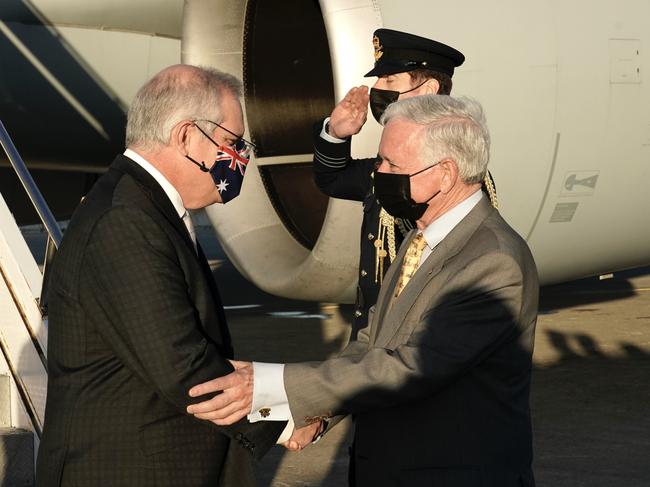
Greiner shook things up with zeal, giving state services a dose of the market and a diet. He made enemies, such as the teachers union, and lost his majority at the 1991 election when voters returned a hung parliament.
To shore up his numbers, Greiner offered his former education minister Terry Metherell, who had become an independent, a job in the then Environmental Protection Authority. The political calculation was Metherell would leave parliament and the Liberal Party would win his seat.
But evidence emerged that Metherell missed the application deadline for the EPA role yet had been appointed within hours of his application.
Greiner was accused by Labor and independents of misleading the parliament, losing a vote of no confidence against his leadership, but not the government. Under pressure, Greiner referred the matter to ICAC and was to endure an ignominy under questioning he could not have imagined.
ICAC commissioner Ian Temby concluded that while Greiner had not acted criminally and had not set out to be corrupt, he would be seen “by a notional jury as conducting himself contrary to known and recognised standards of honesty and integrity”.
With pressure again mounting through a no-confidence motion in the parliament, Greiner resigned. The NSW Supreme Court later ruled ICAC had gone beyond its powers.
O’Farrell won the 2011 election, humiliating Labor, as voters vomited out the remnants of the party’s 16-year tenure, after the premiership was ferried from Bob Carr to Morris Iemma to Nathan Rees to Kristina Keneally.
Across time, Labor’s factional miscreants were paraded before ICAC to have their day or weeks or months in the public stocks. Former ministers Eddie Obeid and Ian Macdonald were found guilty of misconduct in public office over the awarding of mining leases. Both went to jail.
Then in 2014, O’Farrell was summoned by ICAC to give evidence in the matter of Australian Water Holdings. It was alleged O’Farrell had received a $3000 bottle of Grange Hermitage from the company’s chief executive. Under oath he denied it, but was later presented with a thankyou note he’d written after receiving the gift.
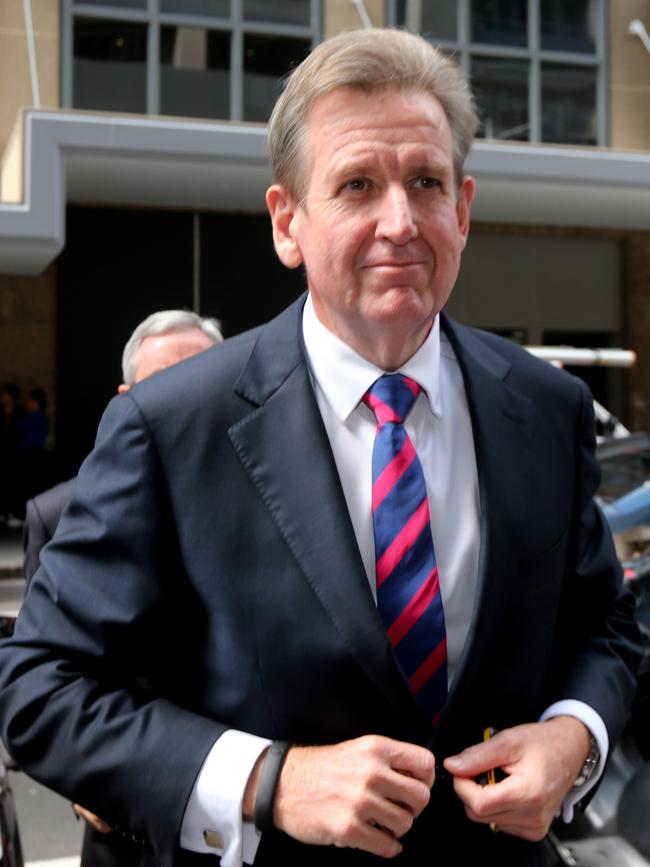
O’Farrell resigned, told reporters he’d had a “massive memory fail” and apologised for his error when he again fronted ICAC. There was no suggestion O’Farrell had engaged in corrupt conduct, and ICAC found there’d been no intention to mislead it, but the “gotcha” element soured the view of some about the watchdog’s potential to destroy reputations and limited avenue for exoneration.
Elsewhere, state anti-corruption bodies have had mixed results in probing politicians.
Queensland’s Crime and Misconduct Commission investigated a series of loans Beattie Labor government minister Gordon Nuttall received from a mining magnate. In 2009 he was jailed for seven years.
Last week, after the South Australian parliament voted to limit the powers of the renamed Independent Commission Against Corruption, commissioner Ann Vanstone asked, “What’s the point of ICAC?”
No doubt intense calls for a federal ICAC will now boil over, while the NSW government faces a moment of truth: on leadership, regeneration and avoiding calamity. Oh yes, and don’t forget the people, just because another one’s gone.
Where to for Berejiklian after the ICAC departure lounge? Too early to tell, of course. But north shore Liberals bounce back and high. Last year the Prime Minister appointed O’Farrell as high commissioner to New Delhi. In February, Greiner was posted to New York as our consul-general.



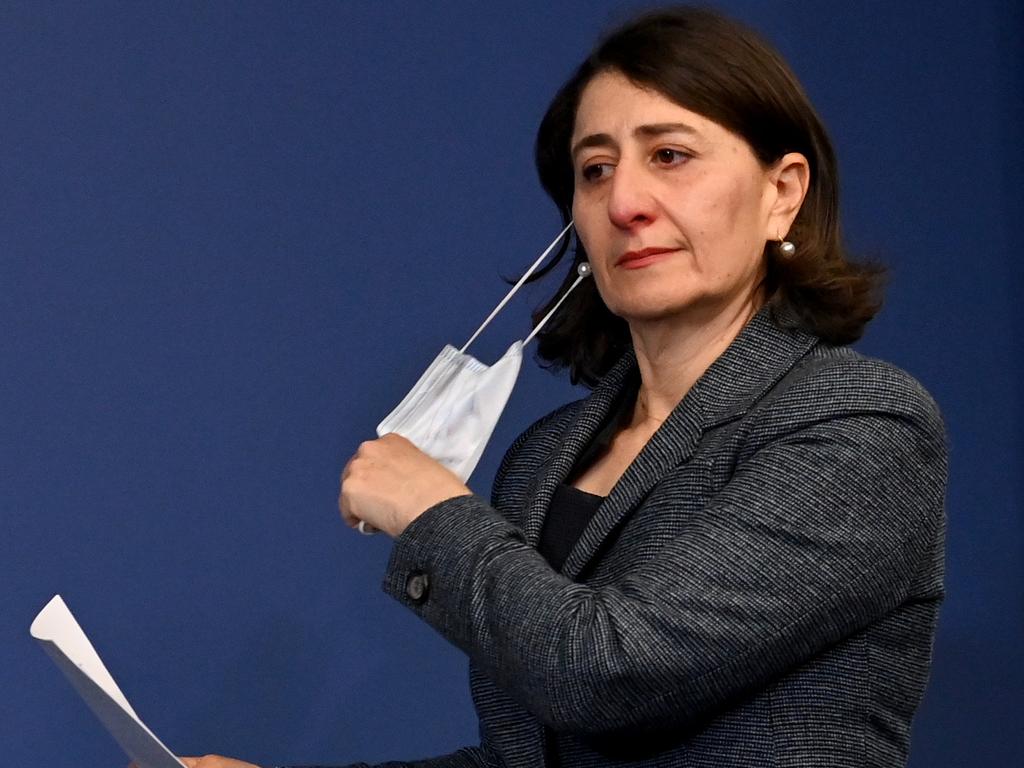
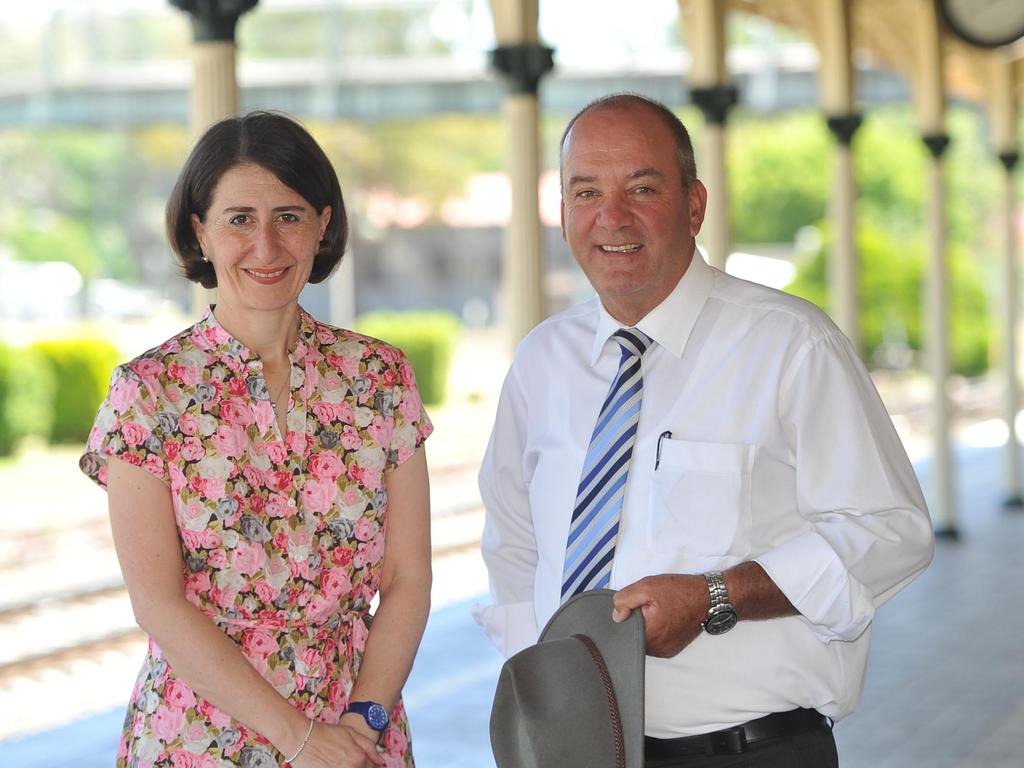

And another one bites the dust. The NSW Independent Commission Against Corruption’s hostile terrain has become a killing field for Liberal premiers from Sydney’s north shore, once the preserve of the city’s prim, proper and punishing wowser elite. Ladies and gentlemen, Gladys Berejiklian has left the building.